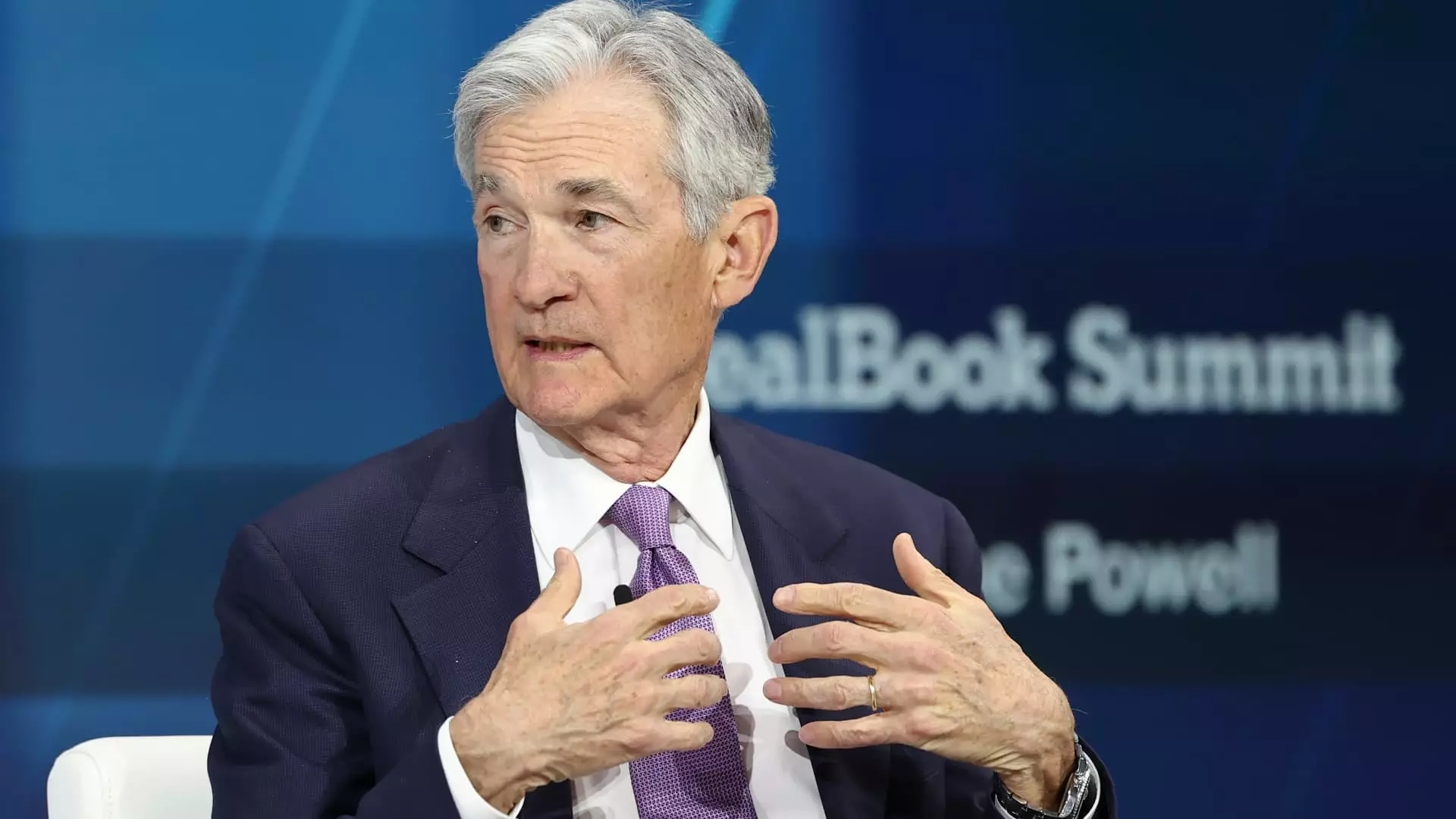Bitcoin has transitioned from a niche digital novelty to a formidable player in global finance, casting new dynamics on traditional investment norms. As cryptocurrency markets garner increasing attention, Bitcoin’s reputation continues to evolve. It has often been seen as a speculative asset rather than a stable currency or a reliable store of value. This perspective has been further illuminated by recent comments from Federal Reserve Chair Jerome Powell, who provided a surprising layer of legitimacy to the digital currency amid its volatile trajectory.
During a recent interview at the New York Times’ DealBook Summit, Powell characterized Bitcoin not as a direct competitor to established currencies like the U.S. dollar, but rather likened it to gold—both are speculative assets, albeit with Bitcoin being the digital iteration of the precious metal. His assertion that Bitcoin lacks fundamental utility as a payment method or as a stable store of value echoes a sentiment shared by many financial experts. In Powell’s words, “It’s just like gold, only it’s virtual.” This comparison adds a layer of nuance to the discussion surrounding Bitcoin’s identity, positioning it as a contemporary asset within the broader investment landscape.
Many observers believe that such a stance from the head of the Federal Reserve imbues Bitcoin with an unexpected credibility. Joel Kruger, a market strategist at LMAX Group, notes that comparing Bitcoin to gold can catalyze investor confidence, bolstering Bitcoin’s stature as an important asset class in global markets. Given gold’s market capitalization is significantly larger than Bitcoin’s, this comparison offers hints at Bitcoin’s potential for growth, underscoring its status in the financial ecosystem.
The immediate aftermath of Powell’s comments was telling; Bitcoin’s price surged by approximately 4%, propelling it past the $103,000 threshold. The broader implications for market dynamics were also notable, especially considering that cryptocurrency audience members often look for signals from influential figures in traditional finance. Powell’s remarks may have inadvertently sparked renewed interest amongst traders and investors looking for validation in their cryptocurrency ventures.
Furthermore, Bitcoin’s trajectory has been decidedly upward since the onset of 2023, with momentum gaining further traction following political changes in the United States. Notably, remarks from now-president Donald Trump, advocating for crypto-friendly policies, have enabled Bitcoin to soar nearly 50% in value after the elections. In contrast, gold’s pricing has remained relatively static, reinforcing the idea that Bitcoin is shifting traditional paradigms regarding where investors allocate their funds.
The context of Powell’s commentary and its timing coincided with a pivotal moment in U.S. regulatory circles. The Federal Reserve and the Securities and Exchange Commission (SEC) hold paramount importance in determining the future landscape of cryptocurrency trading. Powell’s limited view on how cryptocurrencies are regulated suggests that institutional acceptance may gradually evolve, albeit cautiously.
The anticipated nomination of crypto supporter Paul Atkins to lead the SEC may further encourage a more welcoming environment for Bitcoin and its counterparts. The shift in regulatory stance could potentially smooth out some of the volatility inherent in cryptocurrency markets, a crucial development for investors seeking stability. This evolving framework, driven by regulatory support, could not only enhance Bitcoin’s credentials but also pave the way for broader adoption across various sectors.
Jerome Powell’s recent statements about Bitcoin may have provided an unanticipated but welcomed endorsement for the historically volatile asset. By framing Bitcoin as a digital equivalent to gold, he has contributed to a growing narrative of legitimacy surrounding cryptocurrencies. The subsequent price surge is perhaps reflective of a deeper, growing metamorphosis in how both investors and regulators view digital currencies. As the crypto landscape continues to evolve in the context of political shifts and regulatory developments, Bitcoin’s future remains a subject of keen interest and lively debate in global markets. The interplay between traditional finance and cryptocurrency will undoubtedly shape how investors approach their portfolios in the coming years.

